Peter Gabriel: The First Four
A true original finds his voice.
This piece is from the What Am I Making Archives. It was first published on August 16, 2023. This version has been lightly updated and edited for this posting.
Peter Gabriel was a bona fide rock star by the time he had turned 25. His band Genesis, had scored a top ten record in the UK with their sprawling prog epic, Lamb Lies Down On Broadway, and sold out shows around the world through1974/75. While at the top of the pops, Gabriel was packing it in to spend more time with his family.
It sounds trite now, but Gabriel’s wife had just had their first child during the Lamb Lies period and she suffered subsequent health problems. Gabriel was already drifting away from the band creatively, and his need to be with his family clashed with a lack of empathy from his unmarried bandmates in Genesis.
Gabriel had conceived of the story around which Lamb Lies Down On Broadway was based, and written the bulk of the lyrics. His persona and unique voice, had been a huge part of the success Genesis had enjoyed. Still, leaving a top ten level act to pursue an as yet unfulfilled solo vision was a daunting way to begin again. Nonetheless, Peter Gabriel set out to tend to his family, and find his own voice.
After some initial searching that included meetings with Todd Rundgren and Jack Nitschze, producer Bob Ezrin was brought in to helm the first solo effort from the former Genesis frontman. The first real benefit that Ezrin provided was his taste in sidemen, most notably Tony Levin. He was also able to act as musical translator for some of Gabriels’ adventurous sonic pursuits.
The resulting first album is a hodge hodge of ideas that misses more often than it hits, to be fair. Yet, even in the misfires there is energy, exploration and exhilarating new territory. This is an artist stretching the boundaries of the music within himself. Gabriel is poking at the edges to get a sense of the space. Goofy moments of barbershop do appear, and there is far too much SNL style rock sax to bear, but a few songs on the record shine with promise.
This first album is of course most famous for the track, ‘Solsbury Hill’. It was a top ten hit upon its release in the UK in 1977. It has since found new life in countless films and TV series. At the time of its release, the song was helped along as it rode a wave of affection for artists of the era like Cat Stevens or Al Stewart. However, the rest of the first Gabriel solo effort is all over the map sonically. Recorded in a grandiose fashion, the record sounds majestic, but confused.
Still, Ezrin, was able to see the value of and support the involvement of players like guitarist Robert Fripp and synth player Larry Fast, whom Gabriel had already worked with and felt comfortable around. After the modest success of his first solo effort, Gabriel was quickly back at work on the follow up.
The first album had been a laborious task and taken months to finish. Robert Fripp, working as producer this time around, suggested a quick and dirty approach for the sophomore effort. The resulting album, often referred to as Scratch due to its effected cover, is a grimy, post punk wonder.
While Car, as the first record is known, is sprawling and epic, Scratch is tight, tense, and pulsating. Fripp described it by saying, “If Peter Gabriel 1977 sounds like it was recorded in a heavenly cathedral, Peter Gabriel 1978 sounds like it comes out of a dingy garage.”
Gabriel wondered if perhaps the record had been made in too much of a rush. Forty some years on, the brevity of the sophomore record and its sonic cohesion make it a much more interesting and listenable album than the laboriously produced debut. It’s also the album where Gabriel truly begins to find his own voice. Released almost exactly one year after his first album, Peter Gabriel was truly becoming an artist independent of his former band, who were now bigger than ever.
Keyboard player Larry Fast and Gabriel experimented with new synthesizer technology, specifically pioneering the use of the Fairlight CMI sampling synthesizer that opened a new world of sonic possibility. As these technologies were improved and refined, the solo sound of Peter Gabriel seemed to solidify further.
Scratch’s opening trio is a declarative artistic statement. From the glam meets ‘Baba O’Reilly’ synth sounds of the opener, ‘On The Air’ into the jangly swank of ‘DIY’, the record then falls into the gorgeous strains of ‘Mother Of Violence’. The arrangements shift, the instrumentation changes, yet they are all distinctly Peter Gabriel. The record as a whole is layered, beautiful, and haunting.
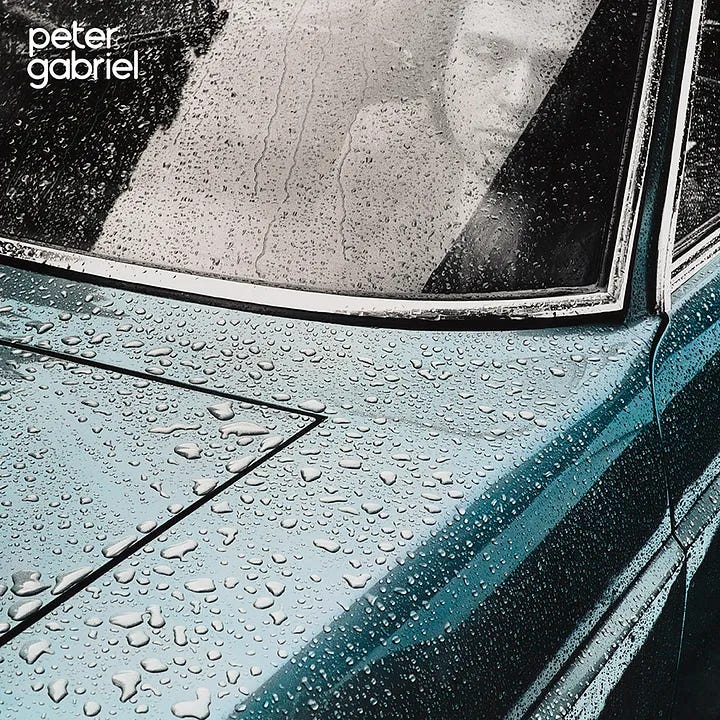
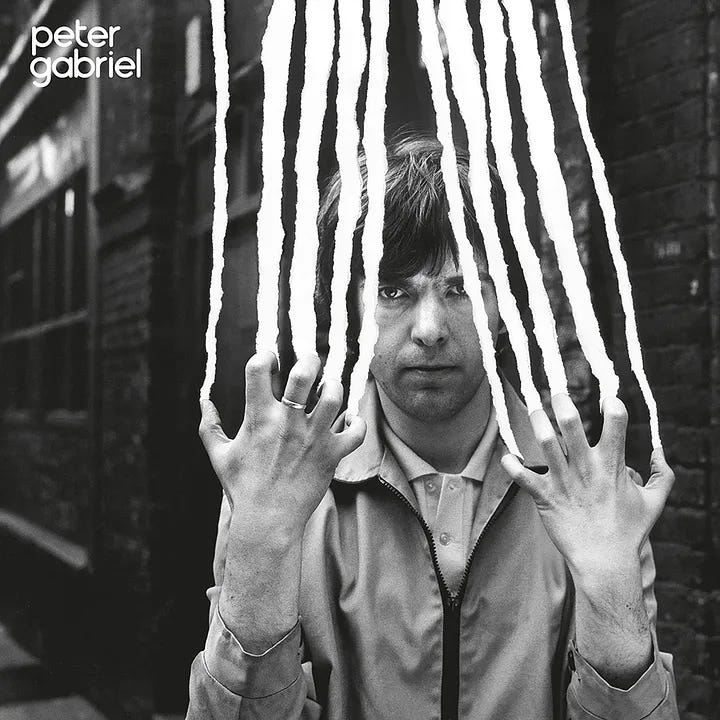
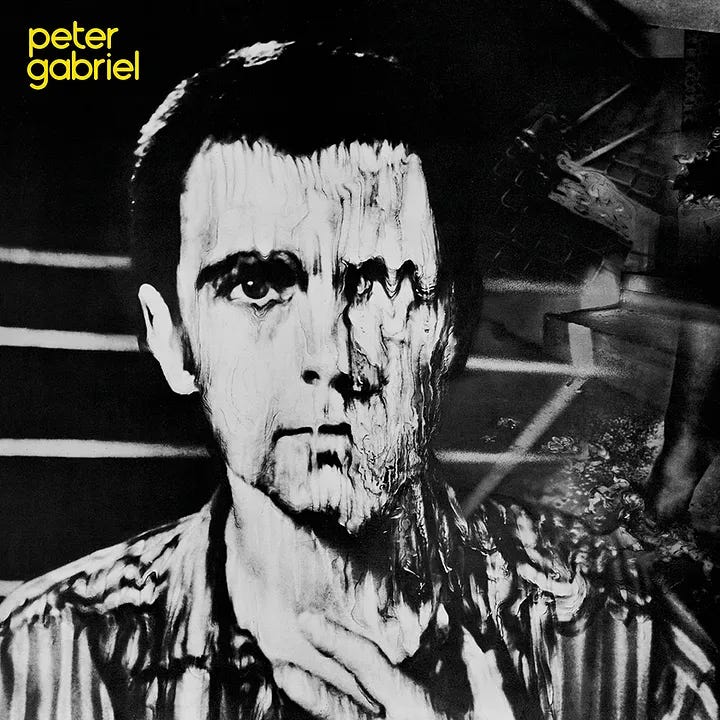
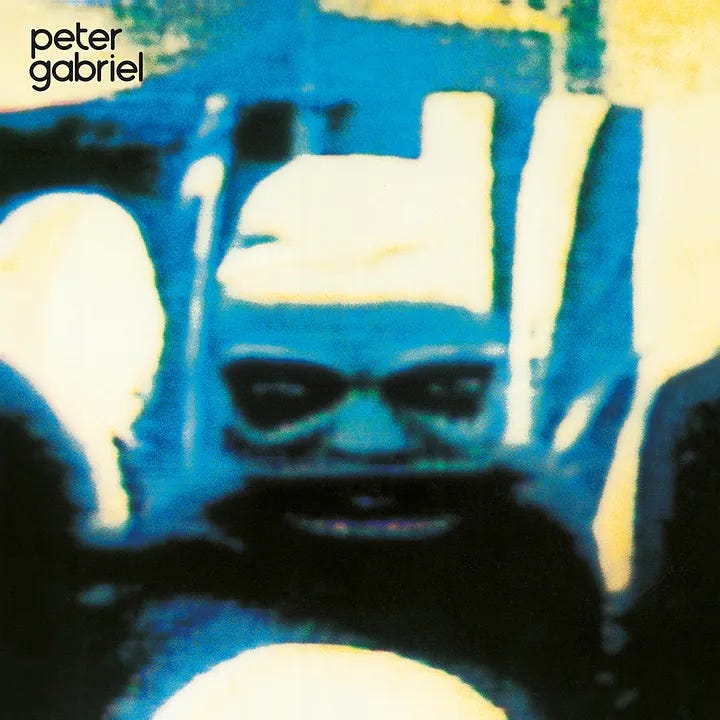
Gabriel toured extensively throughout 1977 and ‘78 to support his first two solo efforts. As he settled into 1979, he opened his ears to world music, specifically the sounds of Africa. These explorations would lead him down new sonic avenues, and also to the story of Bantu Stephen Biko.
Biko, an active and effective anti-apartheid activist was jailed in August of 1977, and then later beaten to death by South African police. Like so many around the world, Gabriel was enraged and fascinated by the story. It awakened and invigorated a political force that he would use as a springboard for his next album.
During the pre-production sessions Gabriel told the drummers playing on the record - Jerry Marotta and old Genesis mate Phil Collins - that cymbals would not be allowed. It seemed an odd request at first. Marotta bucked a bit, but came around. According to Gabriel, “Phil was cool about it.”
Years later, Gabriel told journalist Mark Blake, “Artists given complete freedom die a horrible death. So, when you tell them what they can't do, they get creative and say, 'Oh yes I can,' which is why I banned cymbals.” By setting limitations like these, Gabriel had opened up new possibilities for his players.
Working with producer Steve Lillywhite and engineer Hugh Padgham for the first time led to remarkable results. Early in the recording process, the team stumbled upon what would later be known as “Gated Reverb” during experimentation for sounds take up some of the sonic space normally occupied by cymbals. The technique became an integral part of the album opener ‘Intruder’ and would later become the trademark sound of Phil Collins’ own drumming.
Kate Bush came into add vocals to ‘Games Without Frontiers’, a pop song that imagined war played as a children’s game. Her gorgeous, almost inconceivably high voice echoing, “jeux, sans frontier” is both beautiful and bone chilling.
In addition to Collins and Bush, Paul Weller of The Jam, was invited in to play guitar on the track ‘And Through The Wire’. Dave Gregory from XTC makes an appearance as well. Gabriel was hungry for new sounds, new voices, new approaches. And he was meshing them all into his most cohesive sounding album yet.
After work on the album was completed, Gabriel offered it to Ahmet Ertegun at Atlantic Records. It’s fair to say that Ertegun was not thrilled with what he heard. Gabriel states, “The album was full of, what at the time were ‘strange’ sounds. I remember when I met Ahmet Ertegun, and he’d first heard that record, which Atlantic later dropped, he’d asked if I’d been hospitalised myself and obviously thought that I’d gone from being some sort of pop artist to some strange backwater.”
The record was eventually released by Polygram, and Melt became Gabriel’s biggest hit yet. ‘Games Without Frontiers’ shot up to #4 in America. The album went all the way to #1 in the UK. Peter Gabriel had found both his voice and his audience. And ‘Biko’ as a song and a force, was beginning to unite an anti-apartheid movement in western countries where Gabriel had fans. The album also received massive critical acclaim from both sides of the Atlantic. More than five years after walking away from Genesis, Peter Gabriel had a hit record, critical acclaim and was even making a small political impact.
If Melt was political, then Security is paranoid. The sci-fi soundscapes of ‘Rhythm of the Heat’ set the scene to open the album. Tribal drums, synthesized flutes and guttural choirs are moving and shifting beneath the howling sound of Gabriel’s voice. The song, originally titled “Jung In Africa”, descends into a pounding rhythm accompanied by primitive instruments and itinerant jungle sounds.
Recording in a studio built in an old farm house, Gabriel produced the record himself. He brought back the core players who had been the bedrock of his first three solo efforts; Tony Levin, David Rhodes, Larry Fast and Jerry Marotta.
Recording at home and producing on his own, did not mean a sacrifice in quality for Peter Gabriel. The farm and house where the record was made were an idyllic location where cows would lick the windows in approval, according to Gabriel. There were challenges though as rain leaked in and mushrooms occasionally grew in the studio itself.
Despite being only eight songs long, Security packs in a lot of action. The lyrical themes are myriad; Faith healing (‘I Have The Touch’), anxiety and jealousy (‘Shock The Monkey’) and the mistreatment of Native Americans ("‘San Jacinto’) are just some of the issues on Peter Gabriel’s mind and tongue.
While Security lacks the accessibility and quasi-pop of Melt, it more than makes up for it in self-confidence. Sonically, it’s a musical extension of where Gabriel had been building for a trio of records. It is a culmination, a victory lap of an artist celebrating and forging his own, unique brand of pop music.
The first four Peter Gabriel albums were released within a five and a half year period. That is not only an impressive level of output, but also a massive musical transformation in a comparatively brief period of time. These records also came on the heels of a 25 year old young man walking away from a gig most of dream of having. Somehow, Peter Gabriel found his way.
Car, Scratch, Melt, and Security provide a window into the remarkable creative progression of a true artist. They are a document of the changing sounds of pop music in the late 70’s and early 80s. Gabriel captured the anxiety and the freedom of a time and helped to shape how it sounded. And his biggest successes were yet to come.
Cheers,
Matty C



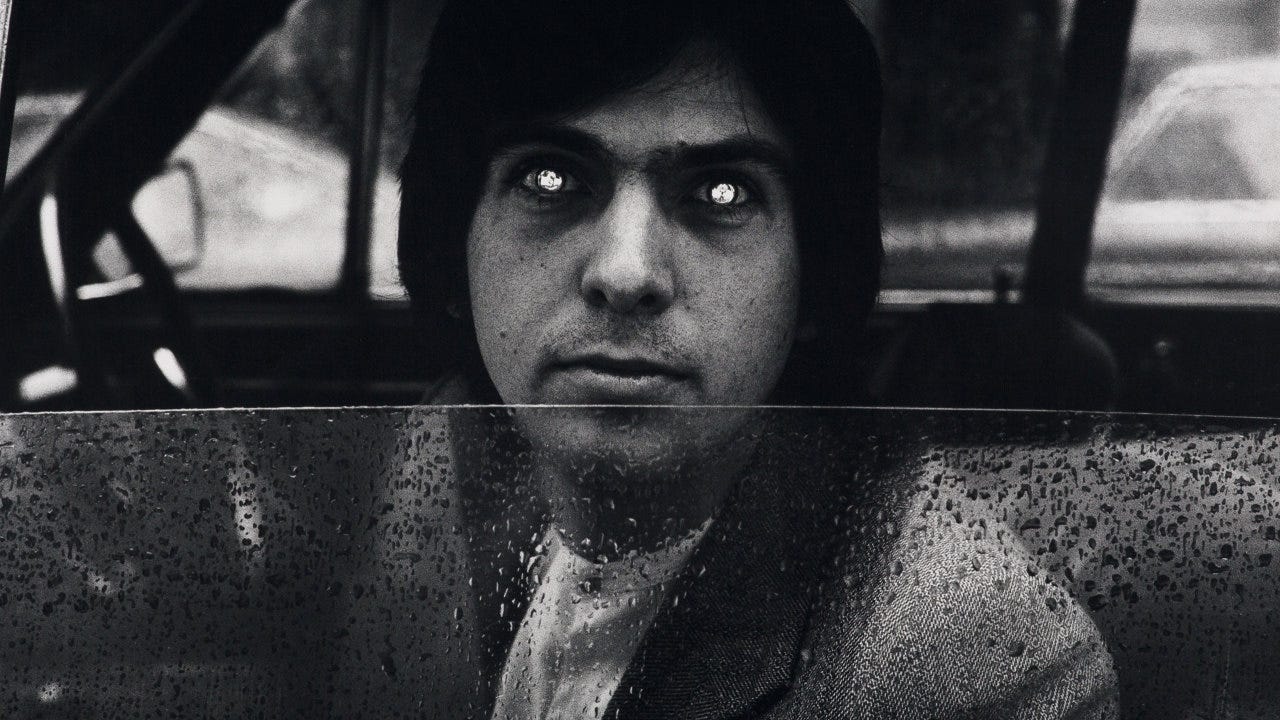
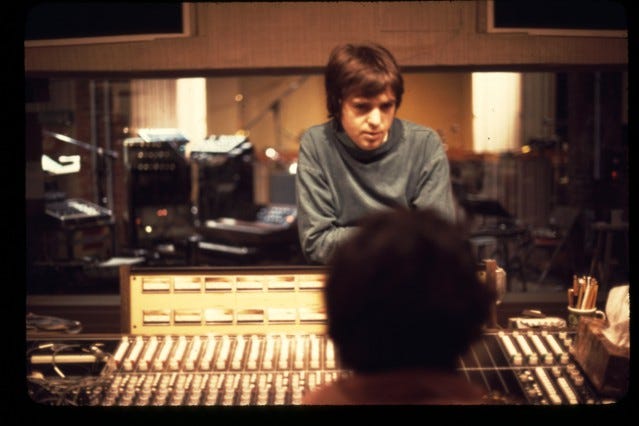
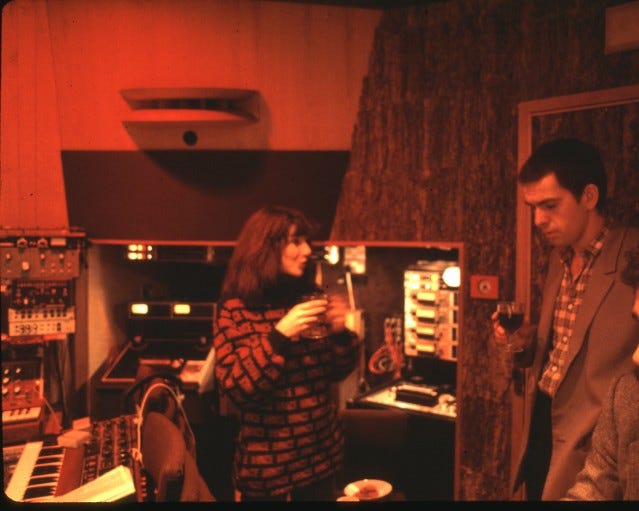
Favorite music artist of all time
I love them all equally. Not one sounds like the other and are completely innovative and surprisingly fresh sounding ever time I listen to them.